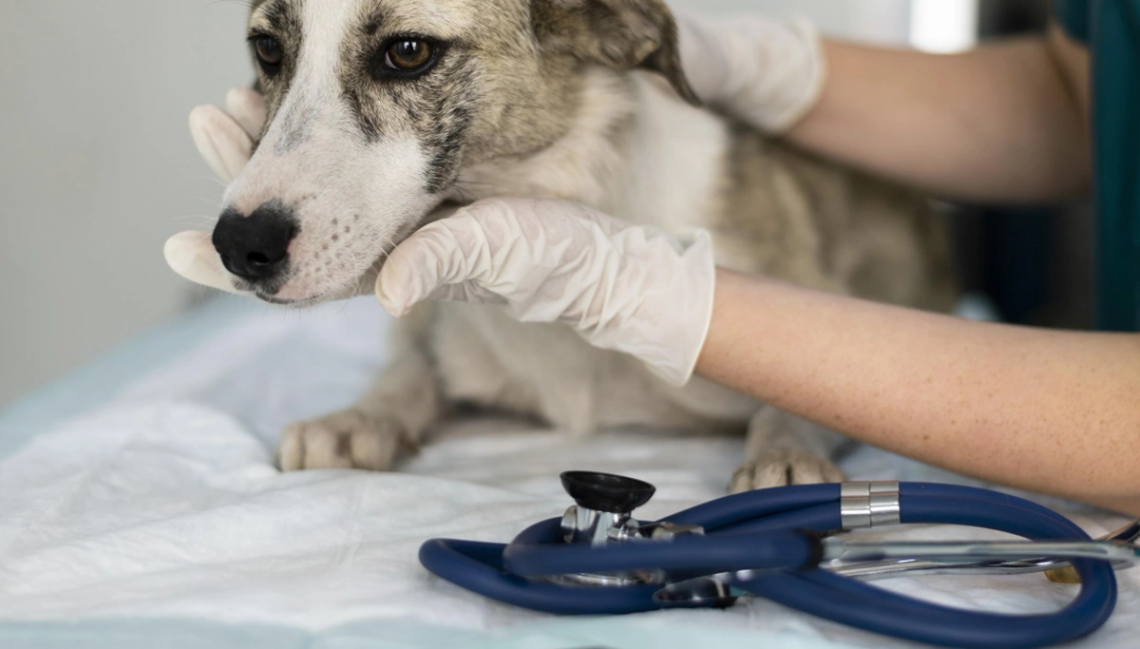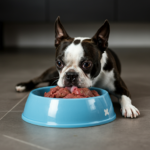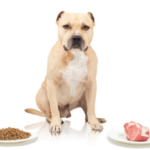(Original Article Published via RawFoodForPets.com)
Liver Problems in Pets and Diet
Did you know – your dogs liver is his (or her) second largest organ, next to its skin? And in this case, size matters, because the liver is central to your fur kids health and wellness. Some of its major jobs include:
- Converts food to energy;
- Detoxifies toxic substances;
- Excretes toxins into the intestines to be expelled;
- Stores vitamins A, D, E, K and some B vitamins;
- Activates vitamin D;
- Stores minerals including iron, copper, manganese and zinc;
- Helps control hormones (including thyroid hormones);
- Removes bacteria and allergens that escape the intestines.
Toxins need to be continuously removed from the body or they will start to interfere with normal body functions and lead to disease. Toxins can cause inflammation and allergy symptoms, so the liver works constantly to remove the toxins produced through the bodys metabolic processes and the environmental toxins it is exposed to.
It is a toxic world we live in ..
Our fur kids are exposed to an alarming number of toxins nowadays! Much more so than yesteryear. Below is just a short list of the toxins they either eat or are exposed to, every day:
- Drugs and medications;
- PBDE (a flame retardant found in many pet foods);
- Aflatoxin (found in many pet foods, this mould is the most carcinogenic natural substance we know of);
- Heavy metals (vaccines contain mercury, aluminium and other toxic heavy metals);
- Genetically modified foods;
- Fluoride (in pet foods and drinking water);
- Yeast (this fungus can grow out of control when the gut bacteria – grow out of balance);
- Unwanted Bacteria;
- Rancid fats (most pet feed / kibble contain oxidized fats);
- Neurotoxins (from heartworm meds and dewormers);
- Lawn chemicals;
- Herbicides (from treated lawns);
- Household cleaners;
- Pollution.
The liver was not designed to deal with this type of chronic toxic load. So it is a good idea to give the liver some help at least once a year – before it falls behind and the toxins start to accumulate in your fur kids. If that happens, you will start to notice symptoms in other parts of the body before your fur kids starts showing signs of liver disease.
What are some of the Signs Of Liver Overload?
When the liver starts to get sluggish and fall behind, like and old diesel engine, or when your fur kids toxic load is so high that it can not filter all the toxins out, you may see the following symptoms in him/her/them:
- Allergies;
- Skin issues (hot spots, yeast and poor skin and coat);
- Poor kidney function;
- Pancreatitis;
- Chronic inflammation;
- Thyroid disease;
- Digestive upset;
- Poor appetite or an inability to lose weight.
The liver is involved in so many of the bodys functions, a poorly functioning liver can cause symptoms in other organs. By giving the liver a good cleanse every now and again will help not just the liver, but all the other organs in the body.
And the answer is?
The first step to keeping the liver functioning well is to reduce the number of toxins your fur kids’ is exposed to. Here are the top ways to keep your mutts, pups & nobles safe:
- Reduce the number of unnecessary vaccines (or even forgo them altogether) – Dogs Naturally Magazine (and others) have published various articles on this topic – you might want to review the article from Dogs Naturally Magazine;
- Consider using natural, herbal-based dewormers instead of meds, such as our custom blend;
- Feed fresh, whole foods instead of processed, toxin-laden foods – in other words – move from feeding to fooding! Checkout our scrumptious selection of supreme pet cuisine here;
- Keep him or her away from treated lawns;
- Clean your home without chemicals – yes it can be done!
Even if you are already doing these things and you do your best to avoid toxins, your fur kids liver still has to deal with our toxic world. A liver cleanse just makes good sense if you want to avoid health issues.
There are several ways to help your dog cleanse – but some can cause harsh reactions. Common remedies include include chelidonium, carduus marianus, Taraxacum, milk thistle and various anti-oxidants.
At DoggyChef, we prefer milk thistle – you are probably already aware of milk thistle (or silymarin) for liver health. Milk thistle protects the liver cells against toxins and the oxidation they cause. It can also help regenerate liver cells.
Milk thistle is best used for acute exposure (for example after vaccination or drugs or after your fur kid is exposed to chemicals) or if your fur kid has existing liver disease. Animal herbalists Greg Tilford and Mary Wulff explain in their book titled “Herbs for Pets” – The Natural Way to Enhance Your Pet’s Life: Despite much of the publicity that has been generated about this wonder herb, milk thistle should not be used as a daily food supplement. Milk thistle is a medicine that is best reserved for situations in which the liver is already under abnormal stress.
Can Raw Dog Food Cause Liver Problems?
The short answer is “not likely“. If your dog has not yet reached end stage liver disease, there is hope for recovery. But, having done your Uncle Google and Cousin Bing online research, you would come to the same conclusion as us – with so much conflicting information, how do you decide which diet is appropriate for mutts, pups and nobles?
More important, which foods will aid in recovery and which foods will exacerbate the condition further?
McKibble is Not the answer
What is rather ironic is that many pet parents believe fooding a raw diet is acceptable for a healthy dog, but it is less than ideal, or dangerous, for sick dogs. Many writings on the internet claim raw diets are risky for dogs with compromised livers because one of the main jobs of the liver is to filter out toxins.
Prescription foods designed for dogs with liver issues are rarely a good fit for a dog with liver issues either. They are highly processed, contain inferior ingredients and, in reality, not much in the way of food. If you were suffering from a similar ailment, would you eat processed foods and McDonalds every day? Neither should your dog.
You have to remember that protein is important for liver health and function. Poor quality proteins or too little protein can cause further damage than what your dog is already dealing with and in fact, protein is necessary for the liver to heal. Protein is necessary for regeneration of the liver. If you are not fooding enough protein, your liver is not getting what it needs to heal.
Raw proteins are far different than those that are processed or cooked. Raw proteins retain their moisture giving them an overall lower protein percentage than those that have the moisture processed out of them. Raw proteins are 60%-70% water. Despite what many believe, dogs were built to eat meat digest raw protein the easiest. It is certainly fitting that we food raw protein (biologically appropriate foods) when our dogs are sick. These foods do not strain the body. Plus, proteins with high biological values leave less waste for the liver to deal with.
Not Sure are You?
Here is a must-read article from Dogs Naturally Magazine that goes over the results from a consumer-funded pet food evaluation. Unfortunately the results show that a shocking number of McKibble brands contain dangerous toxins and molds that can contribute to cancer and liver disease.
In Summary
Toxins can accumulate in our body and cause various diseases. It is important to help the liver process these toxins efficiently to prevent these diseases. Ways to assist the liver include:
- Eating a healthy diet rich in antioxidants that support liver function.
- Drinking plenty of water to help flush out toxins.
- Regular exercise to support overall health and aid in toxin elimination.
- Avoiding exposure to harmful chemicals and pollutants.
Articles and Videos
* Disclaimer: This information is for educational purposes only and is not intended to replace the advice of your own veterinarian or doctor.





